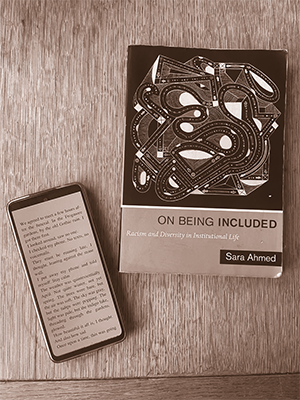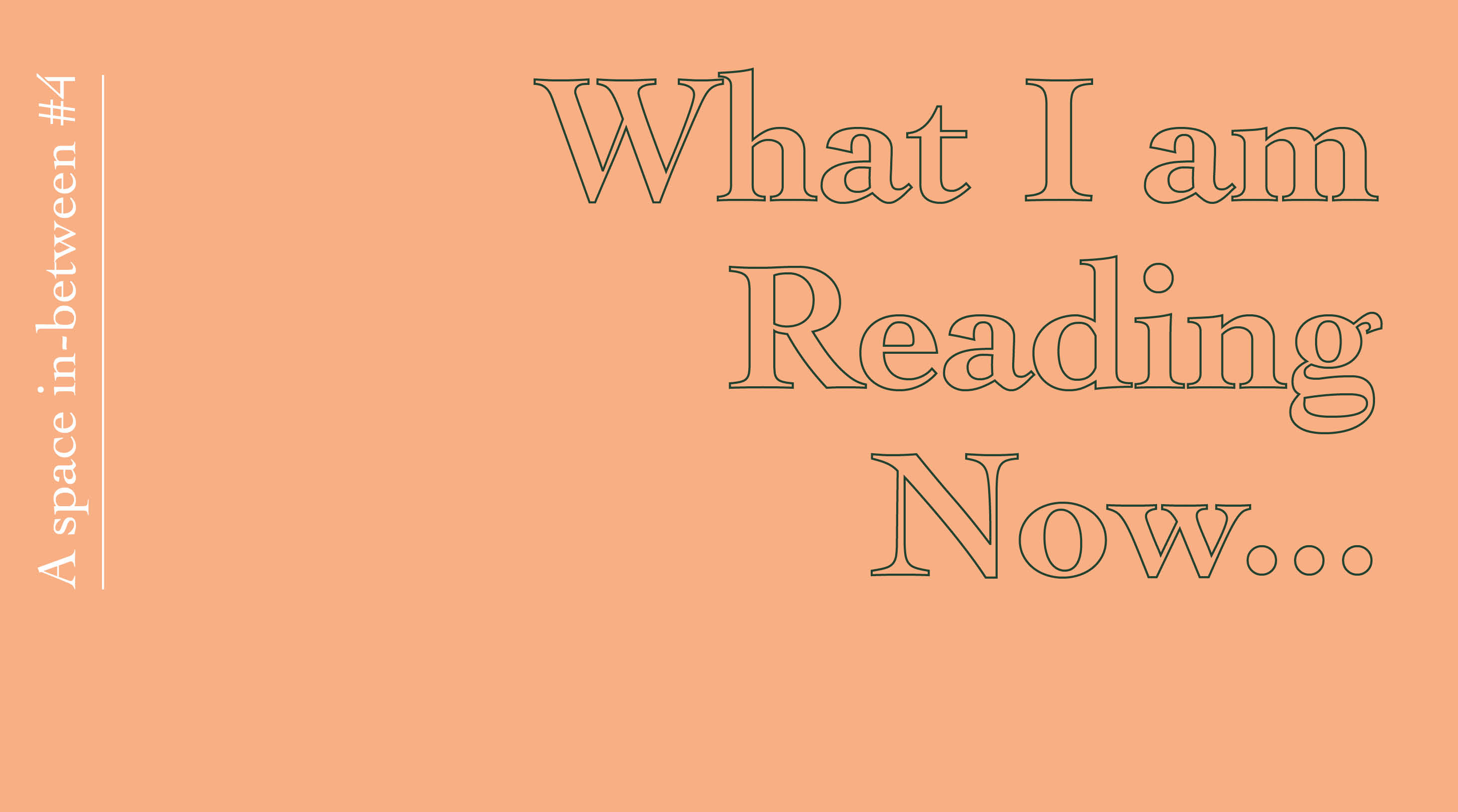What I am Reading Now…
Rosa-Johan Uddoh
April 2023
I began the new year listening to the audiobook of Amia Srinivasan’s The Right To Sex (2021). It was recommended to me by my good friend the artist and academic, Thandi Loewenson, who kept sending me screenshots followed by three ‘mind-blown’ emoji faces. Having listened, I have to say her review was correct. It’s been a while since I’ve read a feminist text that really cuts to the heart of some fundamental issues that feminism is forged around: sex, abortion, abolition and more. Srinivasan is so careful in her articulation of reasoning behind principles held as self-evident by so many of us who call ourselves radical feminists, and this gives me an unshakable confidence in them. I think that’s so important in these times when so many feminist principles and practices are under direct attack. I feel ready to fight again.
I hope Thandi won’t mind me writing here that she quickly followed up this recommendation with a link to an ebook of Spare by Prince Harry (2022). I have to admit, I haven’t read anything so engaging since, in 2005, an anonymous fellow traveller on the top deck of the 466 bus sent me, via Bluetooth, the manuscript for Keisha Da Sket, written by the then 13 year old, Jade LB. Both books, I’d argue, are best devoured on a phone, rather than in print; like Sket, Spare feels completely unfiltered, like reading through someone’s notes app. I was quite surprised to find out that, like Keisha Da Sket, Harry, the Prince, structures his book through a string of detailed sexual and romantic encounters. But while Jade LB’s Keisha’s non-chalant escapades have a mood of early noughties feminist liberation, a young Black girl from the ends living life free, in Harry’s book, each woman is asked to bare his pain with him, until one finally agrees. Finally, like Sket, Spare contains a number of highly improbable events that aren’t remotely logistically possible, such as the claim that Prince Harry shops in the TK Maxx sales, and manages to get in and out in 15 minutes. For the last 2 years I’ve taught a creative writing module on an undergrad course, and often the young female students will shrink from telling their own stories, thinking they’ll come off narcissistic, uninteresting, and that they have too much relative privilege to write about the ways they are oppressed. In Spare, Prince Harry has no such shame, no such self-awareness, and, honestly, I think this is something we young women can learn from. Luckily, in my formative years, I had Jade LB as a guide. LB is not Keisha, but in committing her fantasies of a sexual liberated teenage girl to text, she achieved one of the first viral literary works – so relatable and cathartic to its intended audience that many thought it was autobiography. Ultimately, the popularity of both these iconic works (16 years after LB first self-published, Keisha Da Sket was picked up and published by Merky Books), is a reminder of the political significance and the joy to yourself and others that speaking your own truth (however fictionalised) can bring. Any scarcity mentality about which stories deserve to be told, should be dismantled by the infinite scroll of the notes app page.
Thandi and I now share an e-library. Community as Rebellion: A Syllabus for Surviving Academia as a Woman of Colour by Lorgia García-Peña (2022) was the first of Thandi’s books I took off the digital shelf. García-Peña recounts her experience as one of the few Black women teaching at Harvard, which ultimately ended in her unfair dismissal. I didn’t know about the history in the US of Black and Brown students and academics campaigning for Black Studies and Ethnic Studies departments in universities there. I haven’t heard so much of a call for whole departments focusing on these areas, in the UK – more often there’s conversation around a de-centered ‘decolonising the curriculum’. Reading this makes me want to find out more.
The final book I’ll mention is Sara Ahmed’s Diversity: On Being Included (2012). As an artist I find Ahmed’s writing so poetic and open, that ideas for potential artworks jump off the page. I’m currently writing a Black Feminist pantomime: a musical workplace drama following Patience Jones, a young British Nigerian recently hired at corporate consultancy firm BAME incorporated. The pantomime follows Patience as she makes her way through various unconsciously biased diversity trials, ultimately breaking free to find self-love. This is greatly inspired by Ahmed’s writing on ‘diversity work’ – the psychological labour often demanded of Black and Brown workers by White Institutions. But, to be honest, I think I’ll be incorporating valuable lessons from each of the year’s readings so far.
Rosa-Johan Uddoh (b.1993, Croydon) is an interdisciplinary artist working towards radical self-love. She is inspired by Black feminist practice and writing.
Through performance, writing and multi-media installation, she explores places, objects and celebrities in British popular culture, and their effects on self-formation. Collaboration is key, she often works with children, activists and other artists to explore and share knowledge. Rosa uses humour to engage audiences in complex issues and have fun while doing it. Her book Practice Makes Perfect was co-published with Book Works and Focal Point Gallery in 2022.
Reading
The Right To Sex, Amia Srinivasan (Bloomsbury, 2021)
Keisha The Sket, Jade LB (Merky Books, 2021)
Spare, Prince Harry (Transworld Publishers Ltd, 2022)
Community as Rebellion: A Syllabus for Surviving Academia as a Woman of Colour, Lorgia García-Peña (Haymarket Books, 2022)
On Being Included: Racism and Diversity in Institutional Life, Sara Ahmed (Duke University Press, 2012)

Please note the views published in What I am Reading Now… are personal reflections of the contributors.
These may not necessarily represent the views of the University of Dundee.
———
Previous Issue: Varsha Nair, March, 2023
Next Issue: layla-roxanne hill, May, 2023
